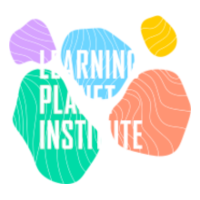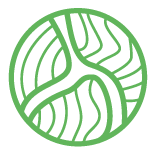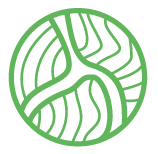Since its inception in April 2024, the R&D Unplugged series by the Learning Planet Institute has served as a dynamic platform for exploring the real-world impact of research. Organised by the Learning Transitions Research Unit, this monthly seminar series invites international and interdisciplinary researchers to share their work, fostering an inclusive environment where participants can engage, learn, and provide constructive feedback. Unlike technical research seminars targeted at researchers, R&D Unplugged focuses on clear, accessible conversations for all citizens about research that matters. Everyone is welcome – no research background needed.
A Hybrid Format for Global Engagement
Each R&D Unplugged session is conducted in a hybrid format, allowing attendees to participate either onsite at the Learning Planet Institute in Paris or online from around the world. This approach ensures accessibility and encourages diverse perspectives. Following each seminar, the sessions are recorded and made available online, accompanied by a podcast episode featuring an in-depth conversation with the speaker.
Diverse Topics Reflecting Interdisciplinary Research
The R&D Unplugged series offers an open and engaging format where researchers present some of the most pressing challenges and transformative ideas shaping education, technology, and society today and in the future.
Across its first 14 episodes, the series has clustered around key themes including democracy and digital ecosystems (Pedro Ramaciotti-Morales on social media and politics; Seth Frey on online communities and self-determination), education for ecological and societal transitions (Iveta Silova on planetary boundaries; Manon Sala on caring universities; Ignacio Atal on teacher-led innovation; Maria Angelica Mejia Caceres on educators’ worldviews), and the evolving role of artificial intelligence (Jean-Marc Sevin and Serge Stinckwich on AI for the Sustainable Development Goals).
Other conversations have focused on critical 21st century competencies like digital literacy and source evaluation (Mônica Macedo-Rouet), participatory science and inclusion (Muki Haklay on citizen science), and ethical considerations in education and society (Laelia Benoit on childism; Carina Castagna on food waste).
Finally, several episodes have highlighted the power of collective intelligence and co-design (Marc Santolini and Olga Kokshagina), underscoring the value of interdisciplinary collaboration in tackling complex, real-world challenges.
Together, these dialogues reflect a dynamic and evolving research ecosystem committed to rethinking how we learn, teach, and act in a changing world.

Why Research Might Be the Most Powerful Way to Change the World
When you’re 20 and dreaming of changing the world, research may not be the first path that comes to mind. But for many researchers, it’s not just a career — it’s a way of thinking, questioning, and building change from the ground up. In the R&D Unplugged podcast, the speakers shared six reasons to choose research as a powerful path to making a difference.
1. Research as a Mindset and a Method
Many of the guests on R&D Unplugged see research not as a job, but as a mindset: a deep curiosity about the world and a willingness to ask hard questions. “Research teaches you how to build good questions,” says Mônica Macedo-Rouet. Marc Santolini agrees, adding that this mindset — rooted in curiosity and openness — can have healing effects on society. Manon Sala even likens research to the natural experimentation of babies: “Try, fail, try again.”
2. Personal Transformation Before Global Change
Iveta Silova reminds us that to change the world, we first need to understand and perhaps transform ourselves. Research, she argues, is not only about solving external problems but also about reorienting our place in the world — a theme echoed by Maria Angelica Mejia Caceres, who sees research as a way to navigate misinformation and foster critical thinking.
3. A Unique Space for Independent Impact
Pedro Ramaciotti Morales points out that research offers a kind of professional autonomy rarely found elsewhere. Unlike the constraints of business or government, research can be a space relatively free from immediate economic or political pressures – ideal for developing independent ideas that require time and depth.
4. Collaborative, Not Isolated
Far from the stereotype of the lone scientist, many guests highlight the inherently collective nature of research. Laelia Benoit and Muki Haklay emphasise how research empowers marginalised voices – like children – and creates spaces for collaboration, especially through citizen science. Research can amplify many voices, not just your own.
5. The Need for Critical, Interdisciplinary Thinking
Jean-Marc Sevin and Serge Stinckwich underscore the importance of being digitally literate – especially in AI and data science – while still rooted in the humanities and social sciences. Serge advises cultivating “slow science,” taking time for thoughtful responses instead of rushing toward premature solutions.
6. Find Your Passion—Not Someone Else’s
Ultimately, most guests agree: your research should come from your own passion and experience. “Everyone else is already taken,” Manon Sala says, “so don’t try to be someone else.” Seth Frey and Olga Kokshagina echo this, urging young people to pursue research in areas that align with their lived experiences, values, and unique vision.
7. The Bottom Line
Research isn’t just about publishing papers or staying in academia. It’s about finding a disciplined yet creative way to understand, question, and contribute to the world. Whether your passion lies in education, environmental justice, child empowerment, digital ethics, or design – there’s room for your voice in research.
If you’re 20 and asking yourself how to change the world, research might just be your most powerful tool!
Looking Ahead
As R&D Unplugged continues to grow, it remains committed to bridging the gap between research and society. By providing a space for open dialogue and knowledge sharing, the series contributes to a deeper understanding of how research can inform and transform our world. With each episode, R&D Unplugged reinforces the Learning Planet Institute’s mission to foster innovation, collaboration, and positive change through research.





